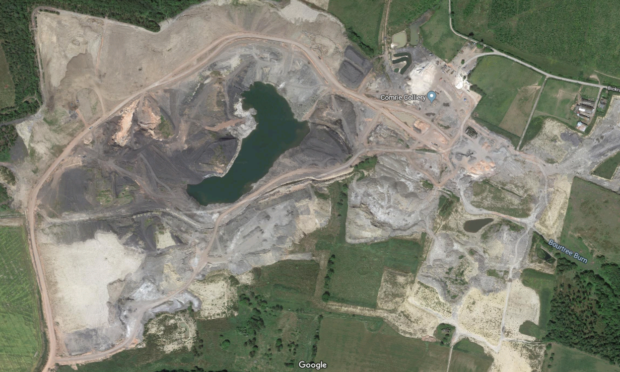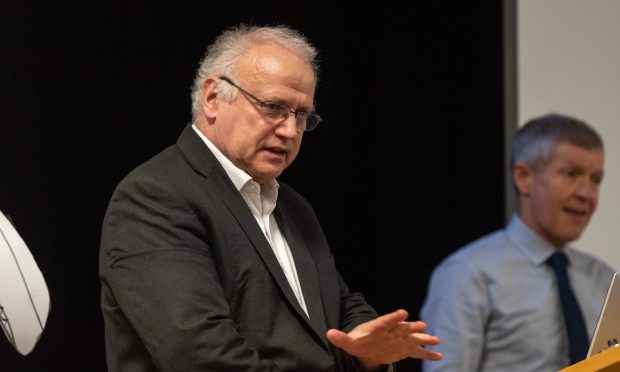A sprawling derelict colliery site in west Fife is one step closer to being restored after planning permission was approved for a recycling facility.
Approval was also granted for the first phase of restoring the bing at Comrie Colliery near Saline, which would see two hectares of the expansive site brought back into use.
There will still be in excess of 300 hectares of land still derelict and with no funding from restoration bonds available, regenerating the site is likely to take decades.
At one point the pit bing stood 130 feet high.
The heap has been reduced in size but it was described in a Fife Council report as still being a “significant mining legacy issue which adversely affects the landscape of west Fife”.
Approval of both planning applications means material from the bing can be processed at the recycling plant and any revenue generated will held fund the restoration project.
Council planner Martin McGroarty said in his report to the committee: “Unlike recent opencast mine restoration projects such as Muir Dean in Crossgates and Blair House in Oakley, there are no restoration bond monies to fund the ongoing remediation of the Comrie site.
“The screening and crushing plant that is the subject of this application is used to sort and recycle bing materials for transportation off-site as saleable products.
“Following the collapse in the market for coal in 2013, and the closure of Longannet coal-fired power station, restoration works at this site are now wholly funded by means of revenue generated by the recovery and sale of materials from within the bing itself.”
The plant at Comrie Colliery was already operating and council enforcement officers found it had no planning consent after complaints from local residents.
Planning permission was finally granted by councillors on Central and West Planning Committee on Wednesday, on the basis the plant would contribute to the overall rehabilitation of the former deep mining site, which closed in 1986.
The work would mean a significant amount of lorry movements – up to 240-a-day.
Labour councillor Bobby Clelland asked if there was any scope to compensate the local community for disruption caused during the works.
Service manager Mary Stewart responded: “I think that would be pretty difficult to defend.
“It’s almost like asking the developer to do something to benefit the community and also pay the community for doing so.”










